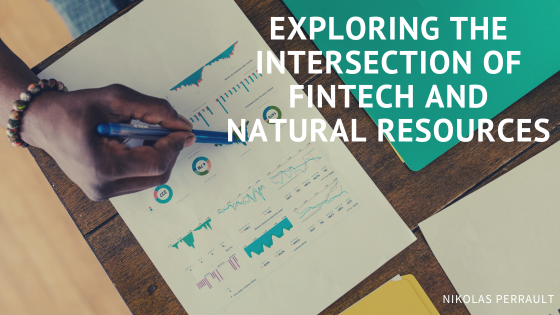The natural resources sector is critical in our economy and daily lives, providing essential raw materials for industries and powering our energy needs. However, the management and utilization of natural resources often need help with transparency, sustainability, and financing. In recent years, financial technology, or fintech, has emerged as a powerful force transforming various industries, including natural resources. This article will explore how fintech influences the natural resources sector, specifically focusing on blockchain applications in supply chain transparency, crowdfunding platforms for sustainable projects, and digital payment solutions for environmentally friendly initiatives.
Blockchain for Supply Chain Transparency
One of the significant challenges in the natural resources sector is ensuring transparency and traceability throughout the supply chain. Blockchain technology offers a decentralized and immutable ledger to record transactions and information securely. This technology could enhance transparency in extracting, processing, and distributing natural resources.
Blockchain can enable real-time tracking of supply chains, making verifying the origin of resources easier and ensuring compliance with sustainability standards. For instance, in the mining industry, blockchain can track the movement of minerals from the point of extraction to the final product, reducing the risk of illegal or unethical practices. Additionally, blockchain can facilitate the certification of sustainable sourcing, allowing consumers to make informed choices and support environmentally responsible companies.
Crowdfunding Platforms for Sustainable Projects
Fintech has revolutionized how we raise funds and invest in projects, and the natural resources sector is no exception. Crowdfunding platforms have emerged as a powerful tool for financing sustainable initiatives, allowing individuals to contribute small amounts of capital toward projects that align with their values.
These platforms connect sustainable projects, such as renewable energy installations, conservation initiatives, or eco-friendly technologies, with a global network of investors. By leveraging fintech, these platforms democratize the investment process, making it accessible to a broader range of individuals and reducing reliance on traditional funding sources.
Crowdfunding platforms provide financial support and serve as a marketing tool, raising awareness and building a community around sustainable projects. This intersection of fintech and natural resources enables innovative and impactful initiatives to come to fruition, driving the transition towards a more sustainable future.
Digital Payment Solutions for Environmental Initiatives
Adopting digital payment solutions has streamlined financial transactions across various sectors, and the natural resources industry is benefiting from this digital revolution. Digital payment platforms offer convenient and secure methods for conducting financial transactions, which can positively impact environmental initiatives.
For example, digital payment solutions facilitate the integration of financial incentives into environmental programs. Incentive programs, such as carbon offset credits or rewards for sustainable practices, can be seamlessly implemented and tracked through digital payment systems. This not only encourages individuals and businesses to engage in environmentally friendly behavior but also provides a transparent mechanism for monitoring and verifying the impact of such initiatives.
Moreover, digital payment solutions can enable direct payments to local communities and indigenous groups involved in natural resource conservation efforts. By bypassing traditional banking systems and reducing intermediaries, these platforms ensure that the financial benefits reach the intended recipients more efficiently.
Conclusion
The intersection of fintech and natural resources opens up new opportunities for transparency, financing, and sustainable practices in the industry. Blockchain technology enhances supply chain transparency, ensuring responsible sourcing of natural resources. Crowdfunding platforms democratize funding, allowing individuals to support sustainable projects and initiatives. Digital payment solutions are streamlining transactions and facilitating incentives for environmental initiatives.
As the natural resources sector grapples with sustainability and responsible resource management challenges, fintech is providing innovative solutions. By leveraging the power of technology, the industry can embrace transparency, engage a broader community, and accelerate the transition to a more sustainable future. It is an exciting time for the intersection of fintech and natural resources, as these collaborations have the potential to reshape the industry and drive positive change for our planet and future generations.
